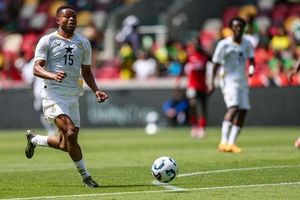The Eurovision Song Contest is set to make a splash this year with a unique blend of music, culture, and technology. The European Broadcasting Union (EBU) and nine public broadcasters have announced the launch of My Eurovision Party 2025, the first official Eurovision Song Contest experience on the popular gaming platform Roblox. Developed by Karta, this innovative experience is now available for fans to enjoy.
My Eurovision Party 2025 allows fans to showcase their national colors and personalize their Eurovision viewing parties. The game will enhance the live broadcasts of the Eurovision semi-finals on Tuesday, May 13, and Thursday, May 15, culminating in the grand final on Saturday, May 17. During these events, players can expect real-time updates, performance snippets, and in-game celebrations, making it a perfect companion for fans tuning in from around the world.
The interactive experience will be available until May 30, 2025, and is designed to engage both current Eurovision enthusiasts and attract a younger audience. Martin Green, the director of the Eurovision Song Contest, expressed excitement about this development, stating, "This partnership opens a new chapter in the world of the Eurovision Song Contest. We are bringing the joyful spirit of the world's largest live music event to a platform where millions of young people already connect, have fun, and express themselves."
The localized versions of the experience reflect the culture of each participating country, featuring custom avatars, personalized items, and broadcaster branding, including portals to additional games from EBU member broadcasters. With Roblox boasting an average of over 97 million daily active users from January to March 2025, this collaboration marks a significant step in the EBU's strategy to evolve the Eurovision brand into immersive spaces while maintaining its commitment to creativity, safety, and diversity.
As the stage is set for the Eurovision Song Contest in Basel, Switzerland, excitement is palpable among the 37 artists preparing to compete. However, the contest's apolitical nature is under scrutiny as political tensions often seep into the festivities. Although the EBU has maintained that the contest is apolitical since its inception nearly 70 years ago, history shows that politics can rarely be kept at bay.
Dean Vuletic, a historian and author of "Postwar Europe and the Eurovision Song Contest," remarked, "It is impossible to depoliticize the event." Jess Carniel, an associate professor at the University of Southern Queensland, echoed this sentiment, noting that since each contestant competes under their national flag, there is always an underlying political dimension.
In recent years, geopolitical issues have taken center stage at Eurovision. The 2022 contest was dominated by the invasion of Ukraine by Russia, which resulted in the Ukrainian group Kalush Orchestra winning the competition while Russia was banned from participating. The following year, the focus shifted to the war in Gaza, where protests erupted against Israeli contestant Eden Golan in Malmö, Sweden. This year, the spotlight is expected to be on Israel and its representative Yuval Raphael, a survivor of the October 7, 2023, attack by Hamas in Israel.
In Basel, demonstrations against Israel's participation are anticipated, although some experts believe the mobilization may be less intense compared to previous years. Vuletic pointed out that the campaign against Israel last year did not yield significant results, stating, "No country boycotted Eurovision because of Israel," and noting that Israel received high scores in 2024.
New rules regarding flag usage may also impact the atmosphere at this year’s contest. Contestants will only be allowed to display the flag of their respective countries, while the audience is free to wave any flag they choose. The Eurovision organizers aim to strike a balance between allowing public expression and providing clarity to delegations about official spaces. Vuletic suggested that this decision was likely influenced by the previous year’s references to Palestine.
However, some experts warn that this policy could have unintended consequences. Lisanne Wilken, an associate professor in European studies at Aarhus University, pointed out a potential "slight perverse effect" in banning candidates from using LGBT+ flags, which could be interpreted as a nod to anti-woke movements. Carniel noted that the Eurovision's embrace of LGBT+ fans has drawn some backlash, and by restricting these symbols, organizers might be attempting to appeal to a broader audience by suggesting that the contest is not exclusively queer.
Despite the absence of U.S. participation in the contest, the political climate under former President Donald Trump has sparked criticism from conservatives regarding Eurovision's approach to diversity. Carniel observed that attacks from Trump on European nations could inadvertently strengthen unity among the European community against external pressures.
As the Eurovision Song Contest approaches, both the excitement for the musical performances and the underlying political tensions promise to create a captivating atmosphere. Fans can look forward to enjoying the My Eurovision Party 2025 experience on Roblox while also navigating the complexities of national pride and global issues that have become intertwined with this beloved event.
For those eager to participate in the Roblox experience, visit roblox.com/eurovision to join in the fun and celebrate the diversity and creativity that Eurovision embodies.






